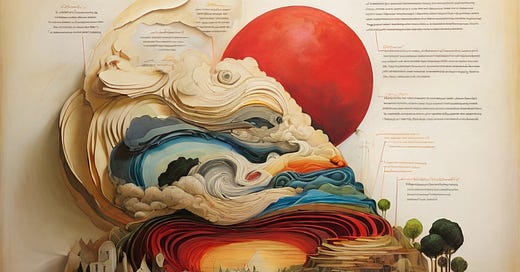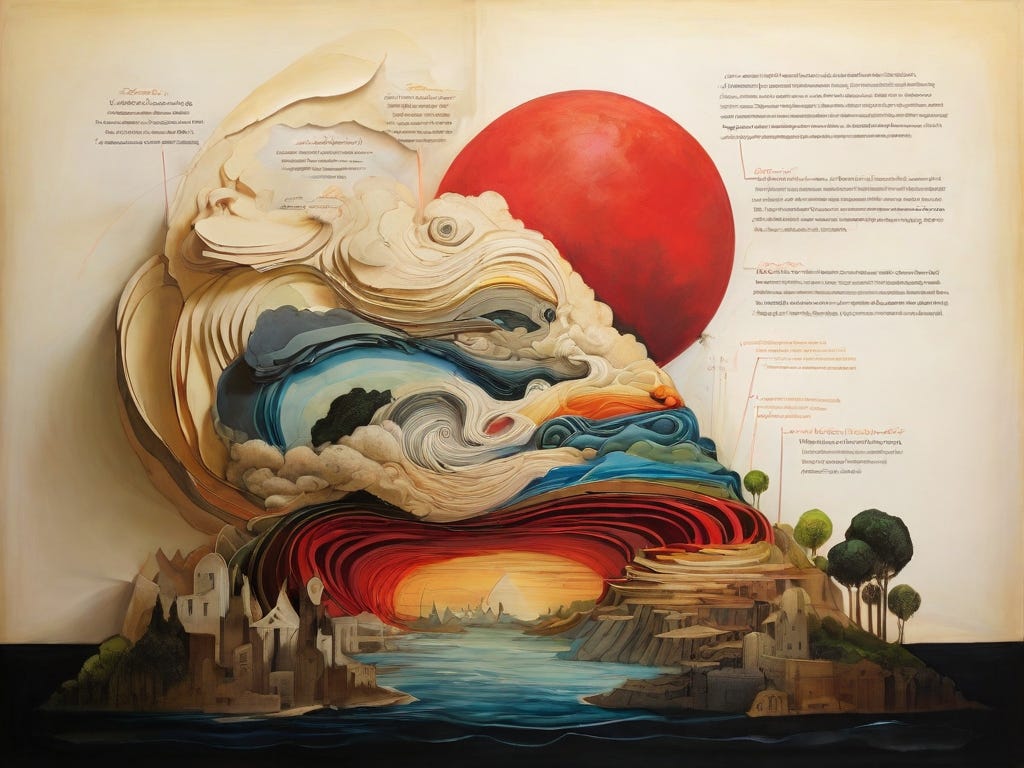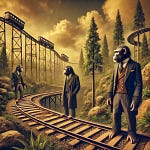Here's an interesting vista of reflection. Consider the meta-layers of narrative in your life, and how they cause you to interface with the world.
What's a meta-layer of narrative? It could be mythical explanations of constellations; it could be their scientific explanation, or a hybrid of the two. It's an understanding that doesn't come from your own life alone, but which affects your experience of yourself and the world. They are filters between us and our world. Not necessarily blocking the world, but perhaps letting a certain quality of light in.
In a culture with a strong oral tradition, the stories that are told and retold about orca, raven, buffalo, magpie, spider, selkie—all these inform people in their relationships with those being.
Modern media has its meta-narratives too. This is true in the case of nonfiction news, giving a specific account of the world, emphasizing certain parts, and de-emphasizing or omitting others. When we receive information from that news source, we are receiving a particular perspective on the world. That news source is like a collective sense organ and brain that gives information about the world to whoever is connected to it.
We’re also informed by fiction, which in the way it lands in us, is not as different from non-fiction as we might imagine. Reading the Lord of the rings, we see great heroes, simple hobbits, crafty wizards, agile elves, and ancient trees. We may find ourselves inhabiting those characters in our day to day lives.
In contemporary stories, we may find queer characters, neurodivergent characters, characters happily outside media beauty norms. We may inhabit those characters in their story, which will change how we we inhabit our lives, and our collective lives.
Which meta narratives are you influenced by, and how do they affect your experience of the world?















Share this post